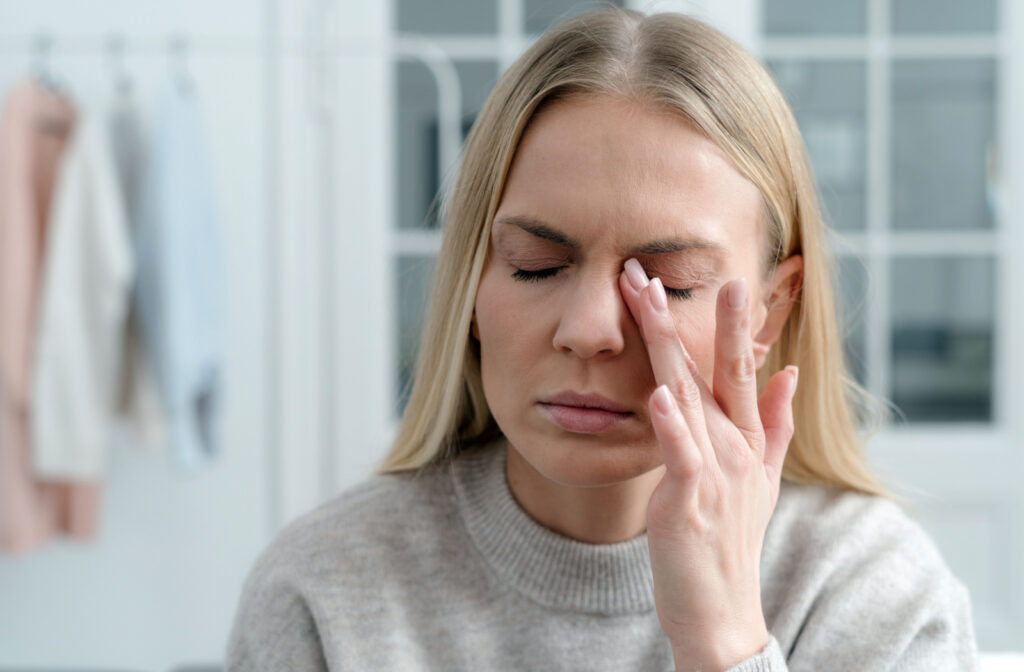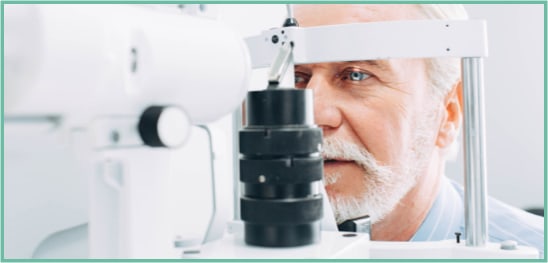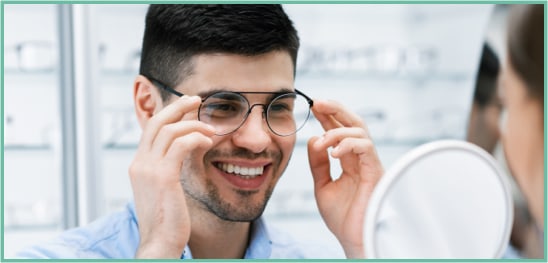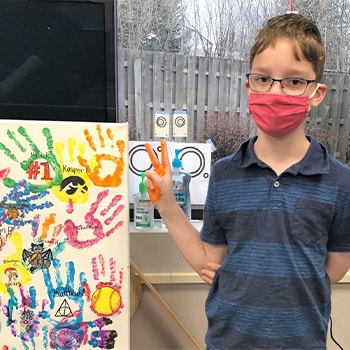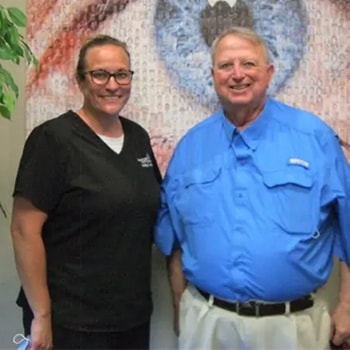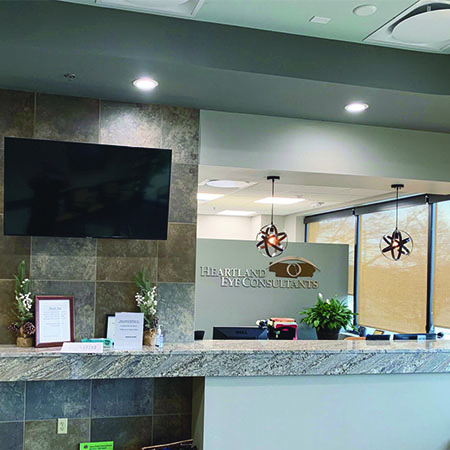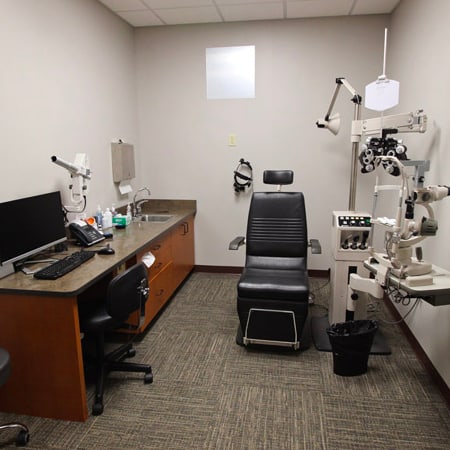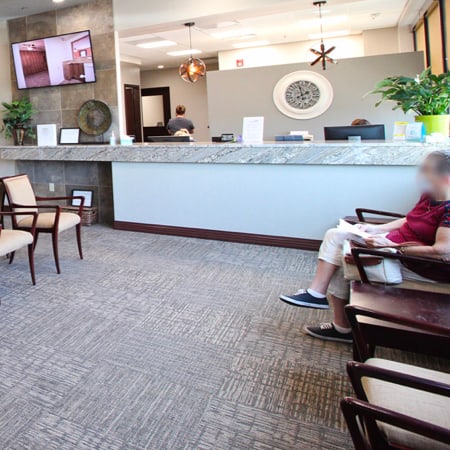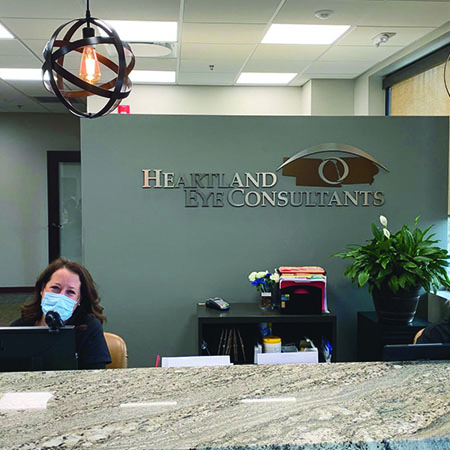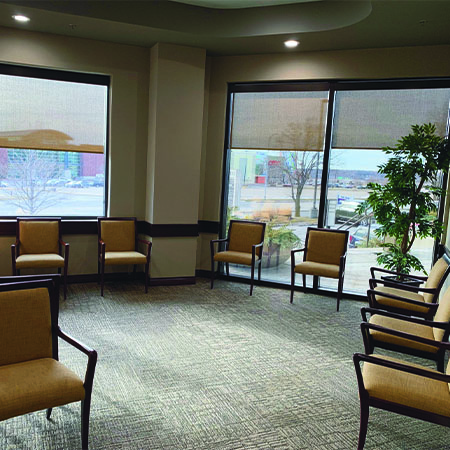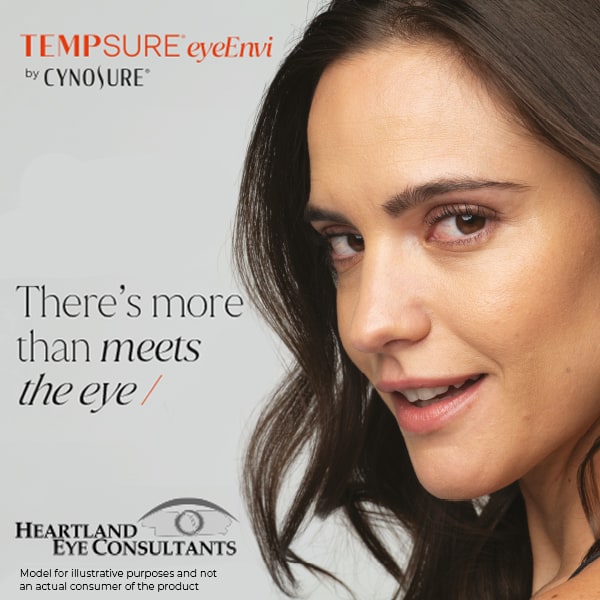Dry eyes are a common issue that occurs when your eyes do not produce enough tears to keep them moist and lubricated or when your tears evaporate too quickly. Even though dry eye disease is not typically sight-threatening, it can cause discomfort and disrupt your daily routine.
One symptom of dry eyes that many people experience but don’t understand is sensitivity to light. The current understanding is that dry eyes with light sensitivity can be caused by inflammation of the trigeminal nerve near the cornea or an irregular eye surface from a lack of tears that causes light to scatter when entering your eyes.
If you notice dry eye symptoms, including light sensitivity, you should visit your eye doctor. They can evaluate your ocular health, diagnose the underlying cause, and recommend treatments like intense pulsed light (IPL) therapy and radiofrequency (RF) help alleviate your symptoms.
What Is Dry Eye Disease?
Dry eyes occur when there is an insufficient amount of tears to lubricate and nourish your eyes—either because your eyes don’t make enough or because your term film evaporates too quickly.
Your tear film, made of water, oil, and mucus, is essential for maintaining clear vision and protecting your eyes from irritants. A disruption in the delicate balance of your tears can cause several dry eye symptoms, such as:
- A stinging or burning sensation
- A gritty feeling in your eyes
- Blurred vision
- Eye redness
- Sore eyes
- Eye Fatigue
- Watery eyes
- Mucus in or around the eyes
- Light sensitivity
- Discomfort when wearing contact lenses
Dry Eyes & Light Sensitivity
The link between dry eyes and light sensitivity lies in the compromised protective barrier of the eyes. In a healthy state, tears not only help keep your eyes moist but also protect nerve endings from light irritation. When your tear film is compromised, your eyes may no longer have a smooth ocular surface and may not be able to focus light properly, leading to light sensitivity.
Another potential tie linking dry eyes and light sensitivity is the trigeminal nerve, a nerve connected to sensory functions in your brain. In some cases, issues affecting your trigeminal nerve can cause both dry eyes and light sensitivity.
Symptoms of Light Sensitivity with Dry Eyes
Those with dry eyes can experience light sensitivity to many types of light, such as sunlight, fluorescent light, incandescent light, computers, or candle flames.
The other symptoms associated with light sensitivity include increased discomfort, squinting, and the instinct to avoid bright environments. Additionally, people with increased light sensitivity might find driving at night challenging due to glare from headlights.
Recognizing these symptoms early on can help you seek timely intervention and treatments to support your quality of life.
Diagnosing Dry Eye Disease
A dry eye evaluation at your eye doctor’s office can help diagnose dry eye disease and the underlying cause. Tests for dry eyes can include:
- Measuring the concentration of specific particles within your tears.
- Measuring the number of enzymes in your eye and assessing inflammation.
- Colored dyes, which are placed in the eyes to assess surface ocular damage and help determine the underlying cause of dry eyes.
- Infrared imaging to check for damage to the meibomian glands that secrete the oil layer in your tears.
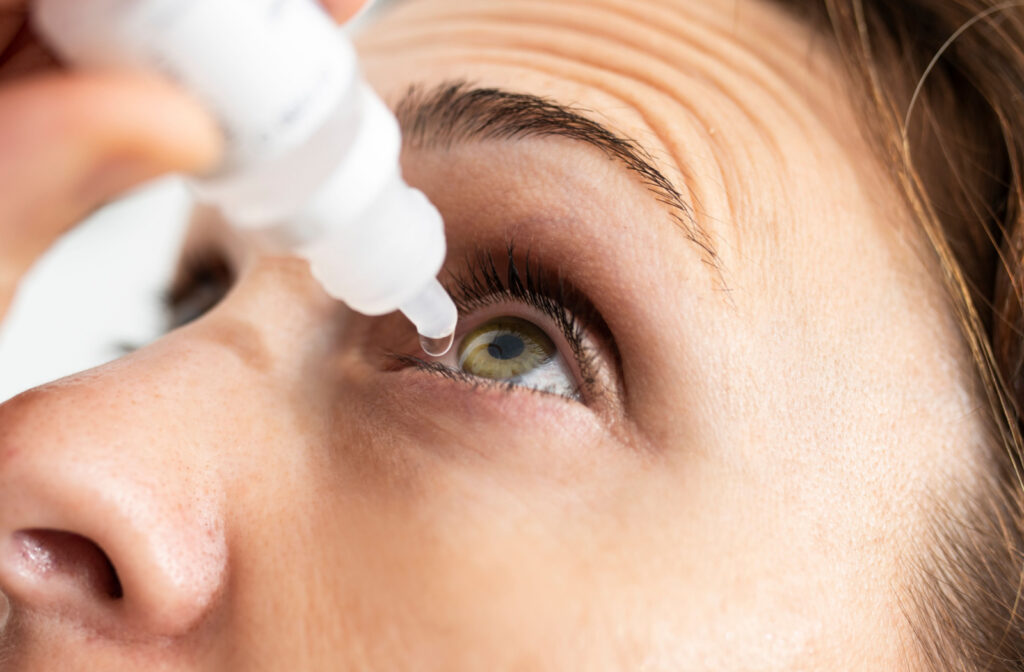
How to Fix Light Sensitivity From Dry Eyes
Addressing light sensitivity in dry eyes may involve multiple forms of treatment aimed at both relieving immediate discomfort and managing the underlying cause of your symptoms.
It’s also important to know that light sensitivity can be caused by several other conditions. So, treatment often starts with identifying the underlying cause of your symptoms through a comprehensive eye exam.
Artificial Tears
The cornerstone of mild dry eye treatment is often using artificial tears. These lubricating eye drops help supplement your natural tear film to provide relief from dryness and reduce light sensitivity. Your optometrist may recommend you opt for preservative-free artificial tears for long-term use to avoid potential irritation.
Prescription Medications
In cases of moderate to severe dry eyes, your eye doctor may recommend prescription medications. These may include anti-inflammatory eye drops or medications that stimulate tear production. Your eye doctor can determine the most suitable prescription for your individual needs.
Lifestyle Modifications
Simple lifestyle changes can also contribute to managing dry eyes. Blinking regularly, taking breaks from prolonged screen use, and maintaining proper hydration may all make a noticeable difference. Additionally, using humidifiers in dry indoor environments can help prevent dry eyes.
Protective Eyewear
Wearing sunglasses or eyeglasses with special coatings can provide a protective barrier for those exposed to environmental factors that exacerbate light sensitivity and dry eyes, such as glares and wind. Sunglasses can also shield your eyes from harmful UV rays, offering relief and protection in various settings.
In-Office Dry Eye Treatments
In some cases, in-office treatments might be recommended to help you get lasting dry eye relief. Our in-office dry eye treatments include:
- MiBo Thermoflo: Designed to be a safe and effective treatment for dry eyes, this technology uses heat to help liquefy oil in clogged glands, thus helping prevent the evaporation of tears and improve tear function.
- IPL (intense pulsed light) therapy: This non-invasive, safe, and gentle light-based treatment can use pulses of light to help reduce inflammation caused by dry eye disease and increase meibomian gland functionality.
- Tempsure eyeEnvi Radiofrequency: Another non-invasive heat therapy to the meibomian glands and also stimulates collagen and elastin to tighten skin and reduce wrinkles.
Protecting Your Vision & Eye Health
Light sensitivity with dry eyes can significantly impact your daily life and overall well-being. Recognizing the connection between dry eyes and light sensitivity helps allow for proactive management and improved quality of life.
If you’re unsure about the root cause of your dry eyes or sensitivity to light and have tried multiple solutions with no success, contact us at Heartland Eye Consultants. Our eye doctors can provide personalized care to address your vision needs and help you get lasting relief.


